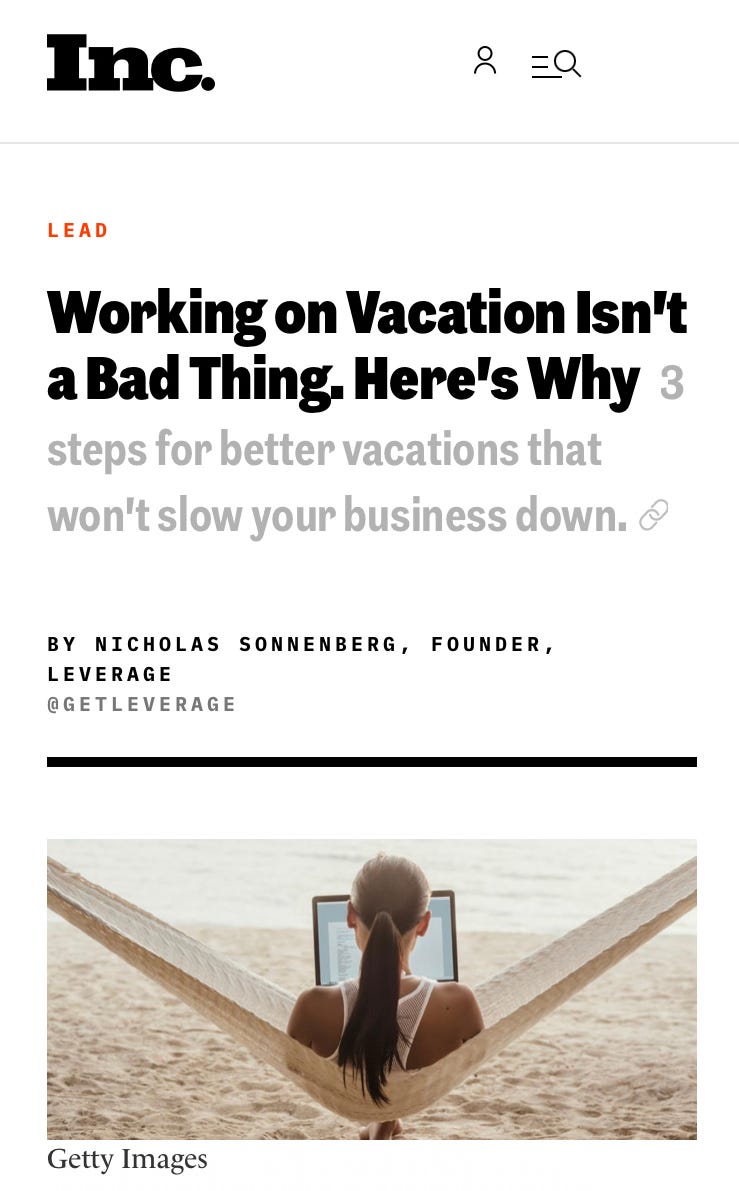
As your summer break starts to get closer, you’ll start winding down and readying yourself for a rest. That's the theory.
The reality is often nowhere close. Exhaustion is creeping in and you’re on a mission to do three weeks of work in one, before you switch off. Ramping up before taking a holiday doesn’t quite fit the storybook approach, but it’s often what happens.
There’s a lot of pressure before going off on a break.
Pressure to balance your responsibility to the business and your responsibility to yourself. Pressure to get things done before you go. Pressure to leave things in a sustainable state of affairs for your team to oversee. Pressure to make the transition into ‘holiday mode’ in a microsecond for those around you. Pressure not to work whilst you’re away (“are you checking emails again?”). And internal pressure to have the perfect break.
That’s a lot of pressure for what’s meant to be a relaxing time.
It's hardly surprising that many people struggle with switching off and really resting.
There's strong evidence to suggest that you should. People who keep in contact with work during their breaks show higher levels of stress and work-family conflict. But the reality is that at the leadership level, the line between working and not working is not a clear one. There will be times, that you need or want to stay connected.
The challenge is that in those final few days before you go, the opportunity to think intentionally about how to approach your rest doesn’t even make the list.
But the way you act sets the tone for the rest of the business. And that extends beyond checking your emails once or twice whilst you’re away. Working yourself to exhaustion trying to get everything done before you go, will set an implicit expectation about how your team should behave too.
The key is to make it a considered conscious choice, rather than a hasty one.
Here’s four things to help you prepare for your break - as the leader you can be, when you’re at your best.
Meantime, if you haven’t already, I’d love it if you hit the button below.
Imagine: Take a moment and imagine you are up in the sky, in a helicopter, watching yourself in the weeks before, during and immediately after your break.
What energy and behaviour would you want to see in yourself?
Think about the time just before your last break away. How far did reality match your aspirational view?
What one thing could help you refine your approach?
Pay attention: Over a third of us report increasing levels of stress prior to taking holiday. Perhaps you find yourself operating at a million miles a minute or maybe you’re struggling to find the energy to get to the end of the week.
Whatever your stress looks like, to avoid burnout take a moment and think:
What happens to your stress levels in the days before you go away?
What tells you that? What do you notice?
What two things could you experiment with to give you what you need?
Read: When you do need to keep in contact with work whilst you’re away, it can be helpful to set some parameters upfront.
This piece by Nicholas Sonnenberg will give you some ideas about how to do that well, without sacrificing your break.
Read it and then consider:
What will you be available for?
What won’t you do?
Who needs to know?
Prepare: It’s tempting to switch off as soon as you’ve tied off all the key items on your list. Before you put your feet up, crack open a beer or pop the champagne, take a moment to plan ahead.
On your first day back, what needs to be your biggest priority?
What are the three most important things that you do?
What order do you need to do them?
It can take your mind a while to get back into gear on your first day back, so use this opportunity to help the ‘future you’. What will take you five minutes today, will take significantly longer on your first day back as your post-break mind gets to grips with reality.
Last week’s issue: 5 Ways to Manage Up, Better
If you found this weeks newsletter useful, I’d love it if you could share it with someone who needs a touch of inspiration. Just click on the button below.









